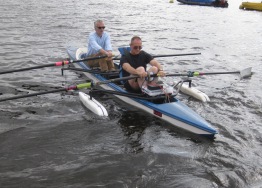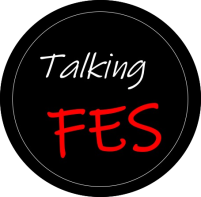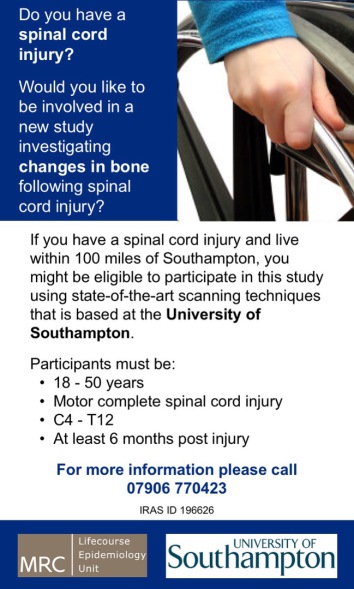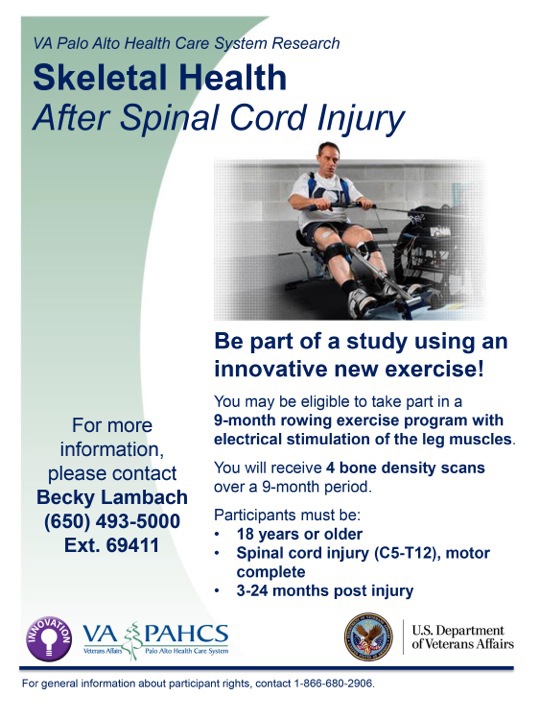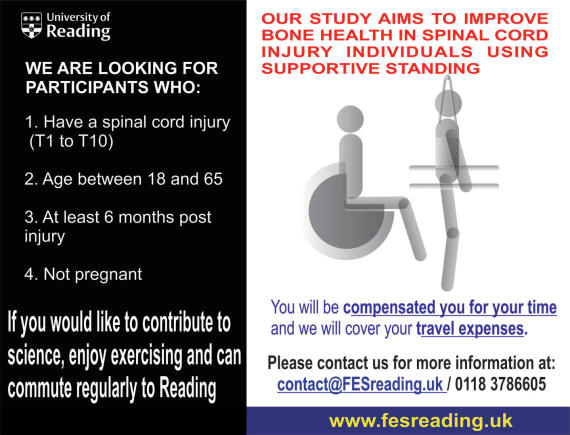Research Studies
This section builds to provide a complete history of studies to investigate or mitigate cardiovascular disease and musculoskeletal health in people with spinal cord injury (SCI). The studies are listed chronologically the most current first. Once a study has been completed, the authors, title, publishing journal, and brief abstract of the studies findings will be presented in the Scientifc Articles section.
2016: University of Southampton HR pQCT Study
This study uses state-of-the-art scanning techniques to assess bone in the wrists and ankles of people with a compete SCI. A high-resolution pQCT scanner will be used to investigate changes in the microstructure of cortical and trabecular bone. The study only requires a single visit to Southampton Hospital, and travel expenses will be paid up to 100 miles from Southmpton. Please see attached flyer for inclusion criteria.
2015: VA Palo Alto Health Care System, California, USA
Researchers at the VA Palo Alto Health Care System are looking for volunteers to participate in a VA funded study about changes in bone health following spinal cord injury. All participants will receive four bone density scans over a 9 month period. Some participants will also take part in a rowing exercise program 3 times per week for 9 months which will use functional electrical stimulation of the legs muscle to perform the rowing action.
For more information contact Becky Lambach:
Landline: (650) 493-5000, 1, 1, 69411
Email address: rebecca.lambach@va.gov
Or click on PAVIR website for more imformation
2015: Reading University FES Stance Training Study
This study aims to improve bone health in people with spinal cord injury, using FES-assisted stance exercise training. A specially designed 'smart frame' is used to enable participants to weight-shift while body weight is supported by activating the antigravity muscles of the lower limbs using FES.
Once a participant has completed initial supervised FES leg conditioning, they will be loaned a stimulator to continue conditioning in the convenience of their own home. On reaching the threshold conditioning to FES stand, training will then be given at Reading University in addition to continuing home-based FES leg conditioning. Participants will be compensated for travel expenses to Reading University for up to 100 miles.
Return to Research Studies


